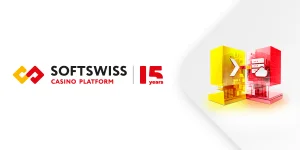One of the primary drivers behind software migration, as revealed in SOFTSWISS' experience, is the strategic constraints posed by the initial platform choice. Particularly in emerging markets such as Brazil, local operators may encounter prolonged downtime scenarios, leading to the erosion of player loyalty, increased churn rates, and revenue stream disruptions.
Pre-Testing for High Traffic Volumes
One of the most pressing challenges is the requirement for thorough pre-testing of the new platform. Unlike new projects that undergo a gradual increase in user traffic, migrated casinos often encounter an immediate surge in traffic. This sudden influx can strain the infrastructure, underscoring the importance of rigorously testing the platform's capacity and performance under simulated peak conditions.
Adapting Game Mechanics and Features
Adapting game mechanics and bonus structures from the previous platform presents another challenge. Differences in technical capabilities between old and new systems may affect how certain features are implemented. Operators must assess which features are crucial for quality user experience and determine their impact on the project's overall performance. Often, replicating similar functionalities in the new system becomes imperative for a seamless user transition, thereby sustaining engagement and satisfaction.
Legal and Compliance Issues in Data Migration
The migration process also involves handling user data delicately, which brings up significant legal considerations. Operators must secure consent from users for transferring their data to the new platform. Ensuring compliance with data protection laws is crucial to avoid legal repercussions and to maintain user trust. Transparent communication about how user data will be handled during the migration is necessary to minimise opt-outs and user churn, which can undermine the platform's user base stability.

